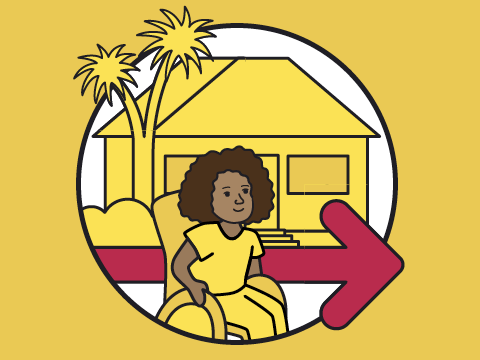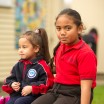Exploring supports | Ngā taituarā
Identify supports that offer a sense of safety and wellbeing for ākonga that can be used in the new setting.
On this page:
On this page:
Current page section: Exploring supports | Ngā taituarā
Go to top of current page: Exploring supports | Ngā taituarā
Go to top of current page: Exploring supports | Ngā taituarā
Go to top of current page: Exploring supports | Ngā taituarā
Why this matters | Te take
Why this matters | Te take

Source: Ministry of Education | Te Tāhuhu o te Mātauranga
What supports are working? | Ngā taituarā whai hua
What supports are working? | Ngā taituarā whai hua
- Identify existing relationships and social supports in the current school: What’s working for ākonga and whānau? Can you transfer these to the new environment?
- What existing supports work in the home environment, and can these be transferred to school?
- What interests, hobbies, or out-of-school activities can be integrated into the new routine?
- Identify home routines that support the child. This includes using digital technology, sleep times, meal times, and before-school routines.
Supporting and enhancing social skills | Ngā pūkenga pāpori
Supporting and enhancing social skills | Ngā pūkenga pāpori
"Mā te tuakana ka tōtika te teina, mā te teina ka tōtika te tuakana"
Older or younger, we all learn from one another.
- Identify social goals whānau may have for ākonga and set up supports such as tuākana–tēina relationships.
- Address any concerns around bullying and digital safety.
- Co-create simple shared social goals (for example, “Say hello to a friend each day”) with input from whānau and celebrate progress at home and school.
- Set up a shared “Social Wins” chart that both whānau and teachers can contribute to.
- Acknowledge that being social isn’t always life-affirming for some learners and adjust expectations accordingly.
- Encourage inclusion of siblings, cousins, or grandparents in social goals.
- Support whānau to arrange playdates or outings with trusted peers in familiar settings.
- Invite whānau to share a cultural or family game, greeting, or song with the class to promote inclusive social interaction.
- Appropriate social skills are those that support the individual’s strengths, needs, personal goals and values. Work with whānau and ākonga to identify appropriate social and emotional goals.
Useful resources | He rauemi
Useful resources | He rauemi

Āwhi Ngā Mātua
This site has helpful advice for parents navigating funding and support for them and their ākonga.
Publisher: Awhi Ngā Mātua

Parent to Parent
Parent to Parent is an organisation that provides free resources and guidance to support parents online and in person.
Publisher: Parent to Parent

Disability Connect
Disability Connect has been helping parents of children with diverse needs since 1990. They have many helpful expos and resources about transitions.
Publisher: Disability Connect
Next steps
More suggestions for implementing the strategy “Nurture whānau partnerships | Whanaungatanga”:
-
Current page Exploring supports | Ngā taituarā
Return to the guide “Te Ara Ako – Learning pathways in times of change”
How to use this site
Guide to Index of the guide: Te Ara Ako – Learning pathways in times of change
Understand:
Strategies for action:
-
Nurture whānau partnerships | WhanaungatangaShow suggestions for Nurture whānau partnerships | Whanaungatanga
-
Develop ākonga partnerships | Te mahi tahi me ngā ākongaShow suggestions for Develop ākonga partnerships | Te mahi tahi me ngā ākonga
-
Prepare your environment | Te whakarite wāhi akoShow suggestions for Prepare your environment | Te whakarite wāhi ako
-
Working as a team | He whānau kotahi tātouShow suggestions for Working as a team | He whānau kotahi tātou

